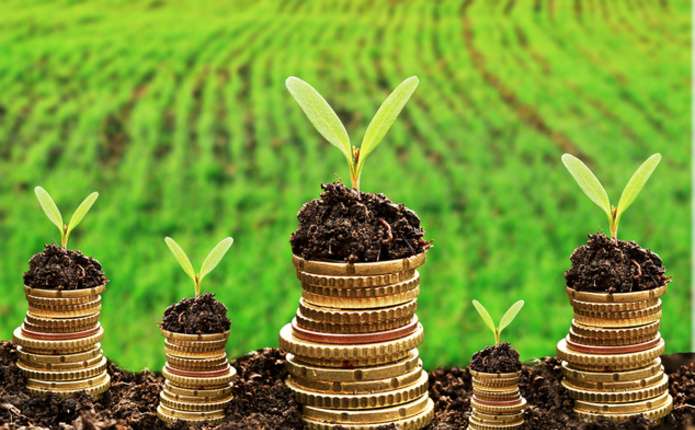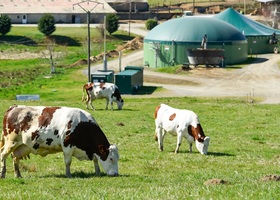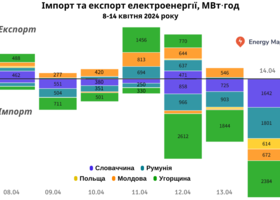Environmental impact on exports: what the government should not forget
Ukraine has already succeeded in increasing the volume of trade with the EU (with the total volume of trade increasing by 27% in January-August 2017 versus the similar period of 2016).

Still, the further growth of our exports depends on many aspects that seem insignificant, in particular, environmental protection.
Environmental matters are a part of the key section “Trade and trade-related matters” of the EU-Ukraine Association Agreement.
But do these matters receive sufficient attention within the trade policy framework? Do environmental standards serve as an important argument for development of trade? Has the free trade area had any effect on Ukraine’s environment, or it’s the other way round: environmental problems obstruct free trade?
Why is this matter of contemporary importance?
The increase of Ukrainian exports to the EU market is closely related to implementation of high European standards on environmental protection.
To create equal trade conditions, the EU has implemented a whole system of standardization, technical regulation and conformity assessment, which includes, among others, environmental standards.
Sooner or later, the EU will raise the issue of conformity of Ukrainian goods with environmental regulations.
It means that Ukrainian businesses must be prepared to compete with European goods, including in environmental aspects. That’s why the approximation of Ukrainian environmental legislation to that of the EU is of extreme importance today.
Environmental directives must be implemented efficiently and in due time, ensuring that the goal of a particular directive is achieved and European principles and mechanisms are put to work.
As of today, we already have one issue on the agenda that remains unresolved: the ban on exports of timber to the EU.
The EU insists on lifting the export ban, rightfully claiming the noncompliance with the Association Agreement. However, Kyiv’s decision was based on the grounds of protecting domestic manufacturers, not sustainable management of forest resources as one could expect in view of the situation with logging in Ukraine.
Moreover, the ban on exports of unprocessed timber did not result in the reduction of logging volumes, and wood is now being exported as “firewood”. This situation definitely needs to be resolved comprehensively, as timber trade must be closely related to the protection of forests.
Learning from the EU?
The European law requires all EU policies (including trade policy) to promote sustainable development. Therefore, the EU’s trade policy is aimed at ensuring that economic development goes hand-in-hand with social fairness, respect of human rights, high labor and environmental standards.
Considering the foregoing, the EU has to work with its trade partners on improving social and environmental standards and use trade agreements for that purpose.
That’s why the EU’s trade agreements contain special provisions concerning trade and sustainable development. By the way, this chapter is also a part of the EU-Ukraine Association Agreement.
The EU and its trade partners began implementing the provisions concerning trade and sustainable development only relatively recently. However, the effectiveness of these provisions is already being discussed, and among others, proposals have been voiced to introduce sanctions in the event of noncompliance with environmental and labor standards.
Presently, the main emphasis in the context of implementing the provisions concerning trade and sustainable development is placed on the creation of institutional structures (establishment of special advisory groups) and monitoring practices (in particular, evaluation of economic, social and environmental impact of agreements, the so-called ex post evaluation).
What can Ukraine do right now? A lot, actually.
– Clearly stipulating environmental and sustainable development aspects in Ukraine’s trade policy. The presence of environmental component in trade agreements cannot depend solely on the policy and approaches of the other party, which is the case right now.
– Developing own instruments of evaluating the impact of trade on, in particular, sustainable development and the environment as its component.
In particular, the Ministry of Economic Development and Trade had to prepare by December 2017 a methodology of evaluating the impact of trade on sustainable development in order to make this evaluation in December 2018. Nevertheless, nothing was done in this respect.
– The trade policy must become open and promote a proper dialogue with all stakeholders, including the broad public.
An advisory group for sustainable development must be established in the form that ensures representation of all stakeholders (including representatives of environmental NGOs); it must possess a proper expertise in the matters of trade and sustainable development and be an effective instrument of influence.
The creation of an advisory group for sustainable development is stipulated in the EU-Ukraine Association Agreement. The Free Trade Agreement between Ukraine and Canada proposes to create a similar mechanism, the Environmental Protection Committee which may include, among others, representatives of the public. The EU has a special instrument for consultations with the public on the matters of trade, the Civil Society Dialogue.
Another task is related to Ukraine’s membership in the World Trade Organization (WTO). Presently, 46 WTO members are engaged in negotiations of the WTO Environmental Goods Agreement. Its purpose is to eliminate trade barriers for important products that can help achieve environmental and climate protection goals.
The EU has already decided on the list of these products, while Ukraine should assess the expediency of joining the negotiation process.
The accession to this agreement would allow Ukraine to propose its own list of products, both for the purpose of export and to bring investments in the respective sectors of the Ukrainian economy.
Author: Natalia Andrusevych,
Coordinator of the Working Group 5 “Energy, Transport, Environment and Climate Change” of the Ukrainian party to Ukraine-EU Civil Society Platform, Chair of the Board of Society and the Environment Resource Analysis Center








